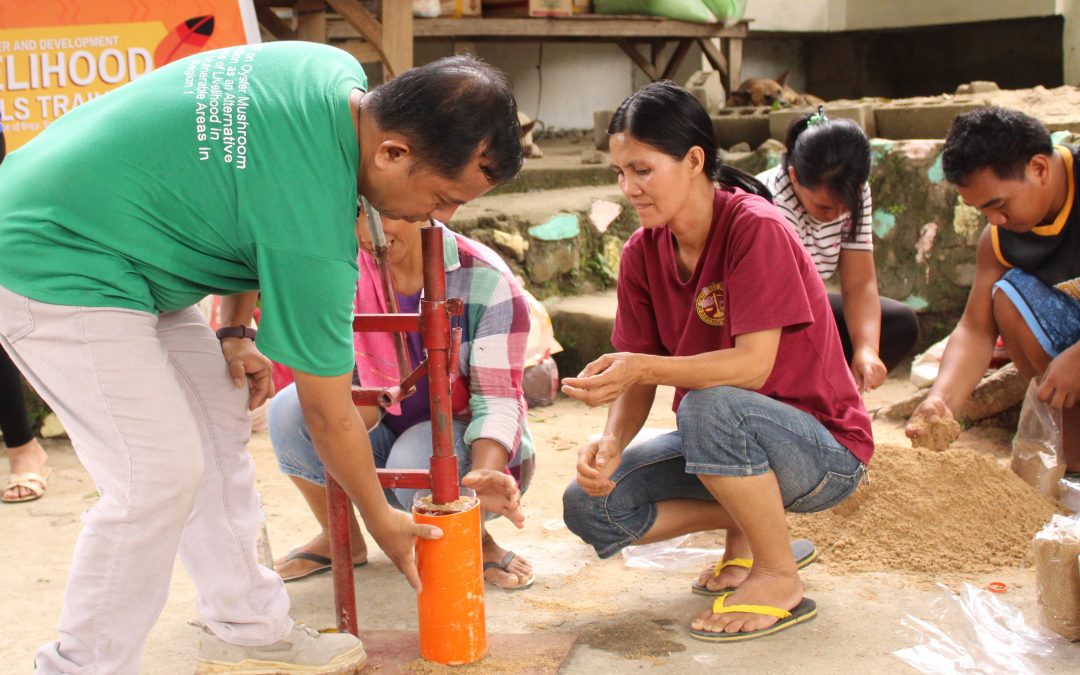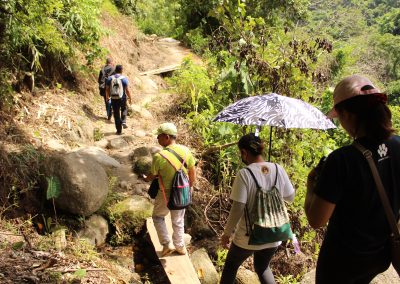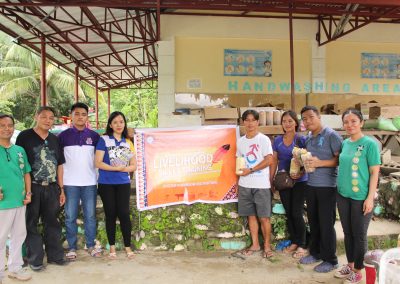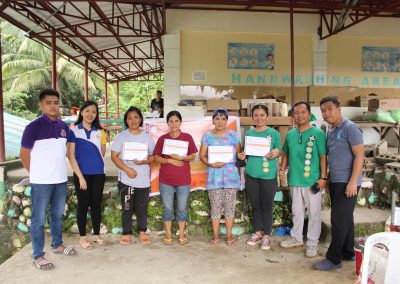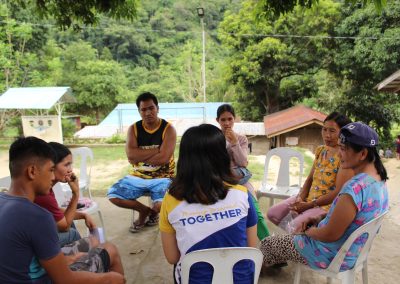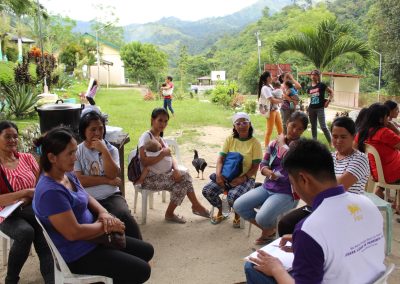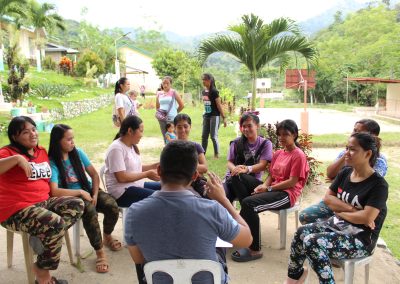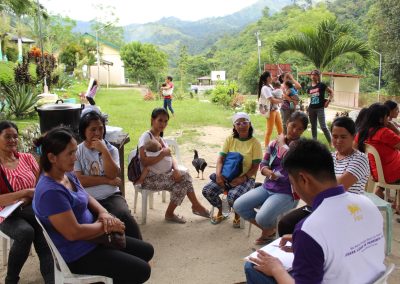After more than an hour-long trek through the mountains of the Ibaloi ancestral domain, Mr. Ambat’s team arrived at Kabayabasan Elementary School (KES) where the abovementioned skills training was held. The team include: Mr. Mark John Padilla (PSU-UCC’s extension coordinator), Ms. Joan Elizabeth Ibay (Social Studies Faculty), Mr. Rodrigo De Vera, Jr. (Teacher and Community Developer from Benigno V. Aldana NHS, Pozorrubio, Pangasinan), and Rev. Isamar Joe Campos (Private School Principal and Oyster Mushroom grower). The team was welcomed by Chieftain Jesusa Tagapong and Mr. Charlie Cayabas, teacher-in-charge, KES.
The program started with a talk from Mr. Ambat entitled, “Related Laws and Policies Promoting the Welfare of Women.” Mr. Ambat emphasizes the role of women–including women from IP communities–in nation building. He noted that women could also earn a living through community-based livelihood such as oyster mushroom cultivation. After his talk, a distribution of pamphlet highlighting the rights of women was done.
The training proper for oyster mushroom cultivation was led by Rev. Campos. He spearheaded a walk-through demonstration on the processes and materials for oyster mushroom cultivation. He advised that with the relatively humid temperature at KES, oyster mushroom could bountifully flourish.
Rev. Campos is also a product of an extension program from PSU Binmaley Campus. Currently, he continues to grow oyster mushroom along being a school principal, senior pastor and chaplain.
After lunch and snacks were served, Mr. Padilla gathered the mothers for a short process discussion on oyster mushroom cultivation and other feasible sources of community livelihood. He also delivered a talk entitled, “Desirable Character Traits for Community Livelihood Development.” Five character traits were emphasized necessary for a sufficient community-based livelihood: participative, teachable, trustworthy, resilient, and perseverant.
The program ended with a distribution of food packs brought and sponsored by Mr. De Vera, Jr.
